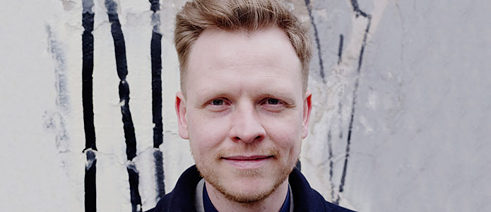German Philosophy
Brilliant, but very Cautious

Once again there is greater interest around the world in philosophy from Germany, says Markus Gabriel, a professor at the University of Bonn and the founder of contemporary philosophy’s “new realism” movement. The culture of debate among German philosophers could be bolder, however.
The weekly newspaper “Die Zeit” once wrote that your aim is to make German philosophy the “world market leader”. How is that going?
It is going well. In my view, three major visible strands of German philosophy play an international role. First, the political or practical philosophy of the Frankfurt School. Then my “new realism” programme which is provoking worldwide debates about the return of German philosophers to the international stage. There are now networks in the USA, and more recently links have also been established with France. The third strand are projects leading on from “German idealism”, which nowadays is often termed “classical German philosophy”. These are pursued particularly in Leipzig and Heidelberg, and in terms of some aspects also in Munich.
Yet you are reluctant in your 2015 book “Fields of Sense” to categorize philosophy according to national schools.
In actual fact philosophy as a science is universal; there are merely arguments and deliberations. On the other hand, one must accept that those who voice their thoughts do in fact come from somewhere. There are two legitimate ways in which to use the term “German philosophy”. First, it may come courtesy of people who speak and write German. In another sense, it is pursued by citizens of Germany. These two groups often overlap, but do not necessarily have to. Then there is a third sense, and it is this that one must use with caution. This sees “German philosophy” as having a certain tradition. Essentially, the cultivation of this tradition regards Immanuel Kant as its starting point. That is the sense in which I pursue “German philosophy”.
Long texts, formulated with careful consideration
In this sense there is also a “German philosophical tradition”. What precisely is it about this tradition that is valued internationally?This tradition goes hand in hand with a particularly brilliant and exacting theoretical construction. It assumes that one should only make any kind of statement about reality if one takes one’s own standpoint into account. Immanuel Kant terms this reflection. The idea of looking in two directions – at the reality and at the possibility of recognizing reality – is a dual attitude that I believe is characteristic of German philosophy.
You say that there is a “new enlightenment” in English-speaking countries. Why there of all places?
In Germany, one always first has to interpret long texts and formulate them very carefully. The exponents of the “new enlightenment” from the USA say: “I believe it is like this – and here are my reasons!” That is what Kant means by enlightenment: the courage to make use of one’s own mind without being guided by anyone else. Just like Plato, Aristoteles and Georg Friedrich Wilhelm Hegel did before them, John Searle, Thomas Nagel and Judith Butler are standing up and saying: “That is how it is.” Then they discuss with those who take a different view.
The difference, in other words, lies in the form of argumentation.
Precisely. I learnt this kind of philosophizing when I was in the USA. If one combines this anglophone culture of debate with the intellectual heights of German idealism, the result is something new. German idealists expressed the truth from their desks as if they were oracles, yet oracles ultimately have no educational function.
In the USA: fighting for clarity over coffee
You wrote “Fields of Sense” in the USA. How do working conditions there differ from those in Germany?The philosophers I came to know there have little in the way of teaching obligations and do not have to drum up third-party funding. They are given their salary and an office. Alexander von Humboldt said that scholars require solitude and freedom. Our colleagues there have both. And if one is making no progress with a particular argument, one simply knocks on one of their doors and asks for help. In the afternoon one meets for coffee and argues until one has at least achieved somewhat greater clarity.
You wrote the book in English – what role does language play when philosophizing?
It makes a huge difference. At least half the time I think in English. The important thing in English is for the thought to be clear. Basically, US philosophers always assume that a thought is an abstract structure for which any number of words can be found.
How do philosophers around the world view the German university scene?
John Searle says he knows of no other country in the world where more people are interested in philosophy. But also that he knows of no other country in which there are so few people who are able to think for themselves. We should get back onto an equal footing with our colleagues in the USA by engaging in discussion with them rather them simply regurgitating their philosophy.